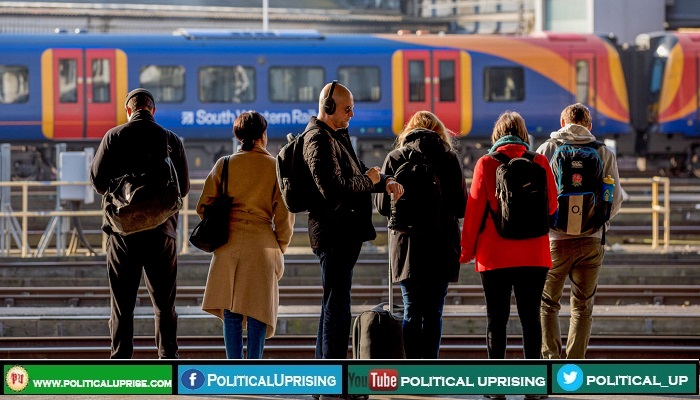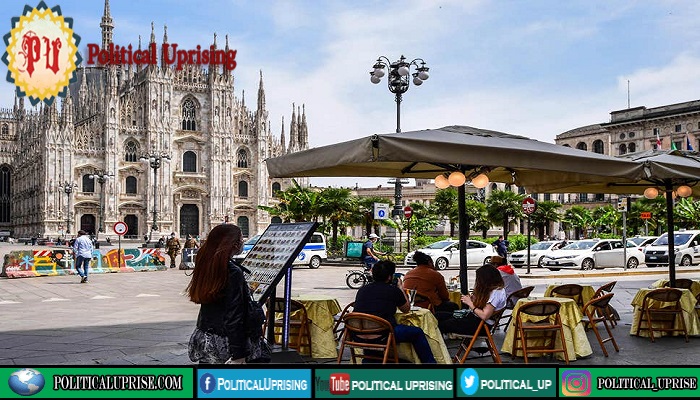British millions of commuters are hit by Rail fares which rise by 2.7%,commuters face an increase of more than £100 for annual passes.
Train companies say it is the third year in a row that average fares have been held below RPI the inflation measure on which rises are based.
In Wales, fares have bucked the trend of rising prices in England and Scotland, with an average fall of 1% this year.
Transport Secretary Grant Shapps said the government was committed to “putting passengers first”, by funding trials for flexible fares, for example.
He said he planned to tackle the “fragmented” system and had begun the process to end the franchise for the rail service Northern, whose performance was “completely unacceptable”.
Government-subsidised private train operators are raising the cost of travel.
Read More:
- British Prince denies sex claims
- British woman guilty of false gang-rape claim
- Romanian court upheld acquittal over British trafficking suspects
- British Islamic State fighters will be brought back
- Turkish President arrives in Tunisia for surprise talks
- US military alert for any “Christmas gift” from North Korea
- Romanian court upheld acquittal over British trafficking suspects
- BJP loses polls in Jharkhand where mob killed many
- British PM in new push for a snap election
Rail passengers in the United Kingdom face “another decade of misery”, with some long-distance commuters seeing the annual cost of getting to work increase by more than 100 pounds ($132).
Fewer than two-thirds of UK trains were on time last year, though private rail franchise operators have paid out billions of pounds in dividends in the last 10 years.
Bruce Williamson, of pressure group Railfuture, claimed fares were “outstripping people’s incomes”.
“Welcome to another decade of misery for rail passengers,” he said on Thursday.
“How on earth is the government going to meet its climate commitments by pricing people off environmentally friendly trains and on to our polluted and congested roads?”
Network Rail data shows only 65 percent of trains arrived at their scheduled station stops within one minute of the timetable in the 12 months to December 7.
South Western Railway passengers suffered from strike action throughout December, while there were major disruptions to Northern, TransPennine Express and West Midlands Trains services during much of 2019.
Rail, Maritime and Transport union analysis of company accounts for train operators and three major rolling stock firms showed they have paid out 4.4 billion pounds ($5.8bn) in dividends to shareholders over the past 10 years.
The UK’s privatised rail network meanwhile receives approximately 5 billion pounds ($6.6bn) in government support each year, reports fact-checker FullFact.
In 2018-19, that figure reached 7.1 billion pounds ($9.4bn) of which 417 million pounds ($551m) was in direct subsidies paid by UK taxpayers to private train operating companies (TOCs), according to government statistics.
“Rail privatisation is costly and inefficient, and we need to end it,” RMT general secretary Mick Cash told the news agency.
“Investing in the railways is always worth it and brings dividends to everyone. The problem is a lot of dividends are going to the private shareholders, when they would be better invested in the rail network.”
Transport Focus director David Sidebottom said: “After a year of pretty poor performance in some areas, passengers just want a consistent day-to-day service they can rely on and a better chance of getting a seat.”
Commuters travelling between Reading and London a 40-mile (64km) journey taking 23 minutes will pay 4,736 pounds ($6,263) for an annual season ticket this year, up 132 pounds ($174) on 2019.
People living in Gloucester and working in Birmingham (55 miles or 88.5km, taking one hour each way) will pay 4,356 pounds ($5,754) this year; an increase of 118 pounds ($156).
The increase in about 45 percent of fares, including season tickets, is regulated by the UK, Scottish and Welsh governments.
This is predominantly capped at July’s RPI inflation figure, which was 2.8 percent, but other fare rises are decided by train companies.
Train fare rises have become something of an annual tradition in the UK, with travel costing more each year in the last 10 years.
The rise, announced by industry body the Rail Delivery Group in November, is lower than the 3.1% increase at the start of last year.
In January 2019, according to the Rail Delivery Group, fares went up by average 3.1 percent. In 2018, passengers faced rises of 3.4 percent on average.
“We know that no one wants to pay more to travel, and rail companies have, for the third year in a row, held average fare increases below inflation while continuing to deliver investment in new trains and extra services that will improve journeys for customers,” said Robert Nisbet, director of nations and regions for industry body Rail Delivery Group.
He added that 2020 will see 1,000 extra weekly services and 1,000 more carriages added to Britain’s train fleet.
In Germany, meanwhile, intercity train fares were reduced by about 10 percent on Thursday, in a government-sponsored bid to encourage more people to use environment-friendly transport.
The German coalition government’s new climate policy reduces VAT on long-distance tickets from 19 percent to 7 percent, with railways passing on the savings to customers in full.
The federal government expects an extra five million passengers will switch to using trains because of the move, and plans to invest more than 12 billion euros ($13.5bn) in expanding and modernising its fleet, according to public service news programme Tagesschau.
British millions of commuters are hit by Rail fares which rise by 2.7%.



